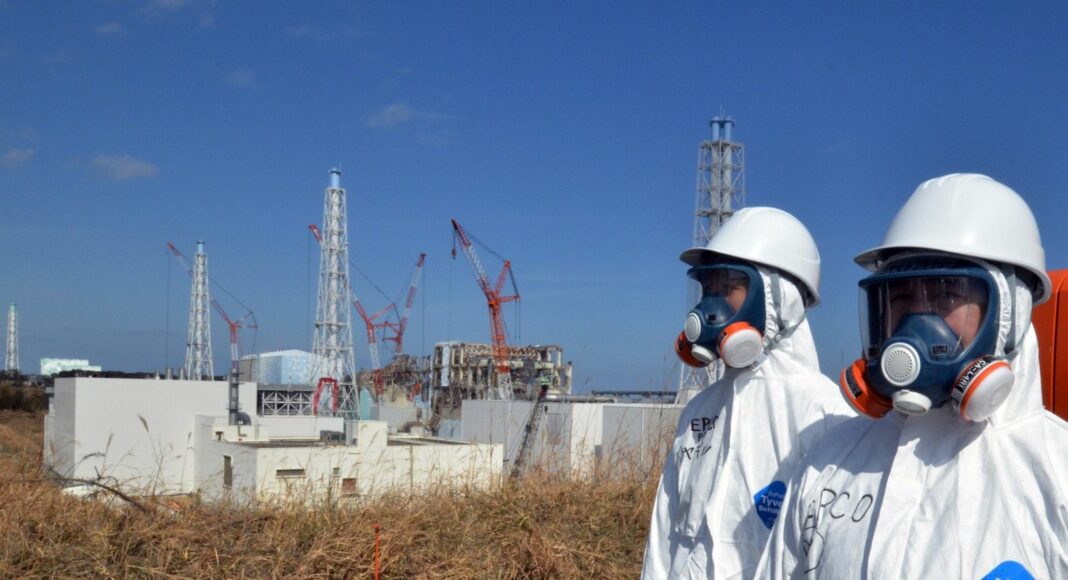Japan will release more than one million tonnes of radioactive water from the destroyed Fukushima nuclear plant into the Pacific Ocean.
The decision, long-speculated but delayed for years due to safety concerns and protests, came at a meeting of Cabinet ministers who endorsed the ocean release as the best option.
The move is being fiercely opposed by Japan’s neighbours – with China’s foreign ministry calling the plan “extremely irresponsible”.
Image:
An aerial view shows the storage tanks for treated water at the Fukushima Daiichi nuclear power plant
In a statement on its website, the foreign ministry added that the move will “seriously damage international public health and safety, and the vital interests of people in neighbouring countries”.
China also said Japan should refrain from initiating the discharge until it has consulted and reached agreement with all stakeholder countries and the International Atomic Energy Agency.
The spokesman added that China reserves the right to respond further to the release of contaminated water.
South Korea expressed “serious concerns that the decision could bring a direct and indirect impact on the safety of our people and surrounding environment”, adding it would step up its own radiological measuring and monitoring.
The country has summoned Japanese Ambassador Koichi Aiboshi over Tokyo’s decision, the YTN broadcaster reported.
Taiwan has also expressed concern.
Fishing unions in Fukushima have urged the government for years not to release the water, arguing it would have a “catastrophic impact” on the industry.
Image:
Environmental activists are opposed to decision
The United States noted that Japan has worked closely with the International Atomic Energy Agency in its handling of thesite.
The US Department of State said in a statement: “Japan has weighed the options and effects, has been transparent about its decision, and appears to have adopted an approach in accordance with globally accepted nuclear safety standards.”
The first release of water will take place in about two years, giving plant operator Tokyo Electric Power Co (TEPCO) timeto begin filtering the water to remove harmful isotopes, build infrastructure and acquire regulatory approval.
Once it has started, the process will take decades to complete.
Japan has argued the water release is necessary to press ahead with the complex decommissioning of the plant after it was crippled by a 2011 earthquake and tsunami, pointing out that similarly filtered water is routinely released from nuclear plants around the world.
Nearly 1.3 million tonnes of contaminated water, or enough to fill about 500 Olympic-sized swimming pools, is stored inhuge tanks at the Fukushima Daiichi plant at an annual cost of about 100 billion yen (£663 million) – and space is running out.
Image:
Some Japanese residents have been protesting against the move
Prime Minister Yoshihide Suga said: “Releasing the… treated water is an unavoidable task to decommission the Fukushima Daiichi Nuclear Power Plant and reconstruct the Fukushima area.”
The filtering process will leave only tritium, a radioactive isotope of hydrogen which is hard to separate from water.
TEPCO will then dilute the water until tritium levels fall below regulatory limits, before pumping it into the ocean.
Tritium is considered to be relatively harmless because it does not emit enough energy to penetrate human skin.
Other nuclear plants around the world routinely pump water with low levels of the isotope into the ocean.
The decision comes about three months ahead of the postponed Tokyo Olympic Games, with some events to be held as close as 60km (35 miles) to the wrecked plant.




